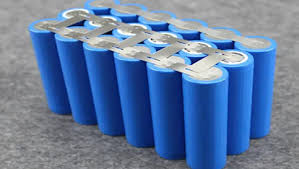lithium ion battery machine
The Evolution and Future of Lithium-Ion Battery Machines
As the world strides towards a more sustainable future, the demand for advanced energy storage solutions has escalated. Among the forefront of these innovations stands the lithium-ion (Li-ion) battery, a cornerstone in the renewable energy sector, electric vehicles, and portable electronics. Rigorous advancements in lithium-ion battery technology have been paralleled by the development of specialized machinery designed to manufacture, test, and recycle these batteries efficiently. This article traces the evolution of lithium-ion battery machines, explores their workings, and speculates on their future.
The Rise of Lithium-Ion Batteries
Lithium-ion batteries were first commercialized in the early 1990s, largely due to their favorable energy density, lightweight characteristics, and relatively long cycle life compared to traditional battery technologies. Their initial applications included powering mobile phones and laptops, but over the past two decades, their usage has dramatically expanded, now encompassing electric vehicles, renewable energy storage systems, and various consumer electronics.
Manufacturing Lithium-Ion Batteries
The manufacturing process for lithium-ion batteries is intricate and demands precision. It typically involves several key stages electrode preparation, cell assembly, electrolyte filling, and formation. Each of these processes requires specialized machinery, which has evolved significantly to meet growing demands in efficiency and sustainability.
Electrode Preparation The first step in battery manufacturing involves producing electrodes, which are the heart of the battery. The production of cathodes and anodes involves mixing active materials with solvents and binders, then coating them onto metallic foils. Machines designed for electrode preparation must ensure uniform thickness and composition, which are crucial for battery performance. Advanced mixing and coating machines have been developed that offer higher precision and speed while minimizing material wastage.
Cell Assembly After preparing the electrodes, the next phase is cell assembly. This stage often involves stacking or winding the electrodes with separators and then enclosing them in casings. Automated assembly lines with robotic arms and vision systems play a vital role in enhancing assembly speed and quality, drastically reducing human error and contamination risks.
Electrolyte Filling and Formation The next critical step is the filling of the battery cells with electrolyte—a process that must be performed in controlled environments to avoid moisture contamination. Post-filling, the cells undergo formation cycling, where they are charged and discharged to activate the electrochemical processes. Machinery that ensures precise temperature control and cycle management is essential during this phase to guarantee optimal battery performance.
lithium ion battery machine

Testing and Quality Control
Testing is a non-negotiable aspect of lithium-ion battery manufacturing. As these batteries power everything from everyday gadgets to electric vehicles, their safety and reliability are paramount. Various machines are employed to conduct vigorous testing, including environmental stress testing, cycle life testing, and thermal runaway testing. Automated systems for checking capacity, voltage, and internal resistance are also utilized, ensuring that only batteries meeting stringent standards enter the market.
Recycling Lithium-Ion Batteries
With the increase in battery usage, so too has the need for responsible recycling. Lithium-ion battery recycling machines are becoming crucial to address environmental concerns associated with battery disposal. The recycling process involves several stages, including collection, disassembly, shredding, and hydrometallurgical processing to recover valuable materials like lithium, cobalt, and nickel. Advancements in recycling technology are simplifying these processes and increasing the recovery rates of critical materials, thereby supporting a circular economy.
The Future of Lithium-Ion Battery Machines
The future of lithium-ion battery machines is poised for exciting advancements driven by the ongoing push for greener technologies. Innovations in automation, artificial intelligence, and machine learning are set to enhance the efficiency of manufacturing processes. Furthermore, as new battery chemistries emerge, such as solid-state batteries, machinery will need to adapt to accommodate new materials and configurations.
The rise of smart factories, equipped with IoT devices, will lead to enhanced monitoring and real-time data analytics, improving production quality and reducing downtime. As demand for energy storage continues to surge, the machinery that supports lithium-ion battery production and recycling will play an essential role in shaping a sustainable energy landscape.
In conclusion, as we navigate the complexities of a new energy era, lithium-ion battery machines stand as pivotal players in ensuring the reliability and sustainability of our energy solutions, underscoring the necessity of innovation in this vital sector.
Share
-
The Ultimate Guide to Square Files for Precision WorkNewsJun.26,2025
-
The Power of Flat FilesNewsJun.26,2025
-
Revolutionize Your Craft with High-Performance Rotary FilesNewsJun.26,2025
-
Precision and Durability with Diamond-Coated Needle FilesNewsJun.26,2025
-
Essential Tools for Precision Work: Round Metal Files and MoreNewsJun.26,2025
-
Essential Tools for Precision Sharpening: Triangular FilesNewsJun.26,2025







